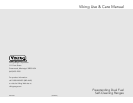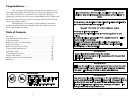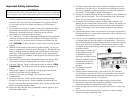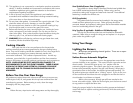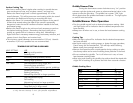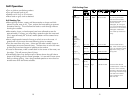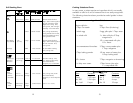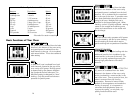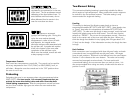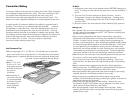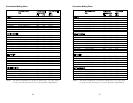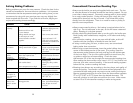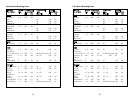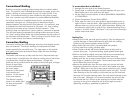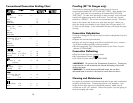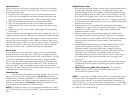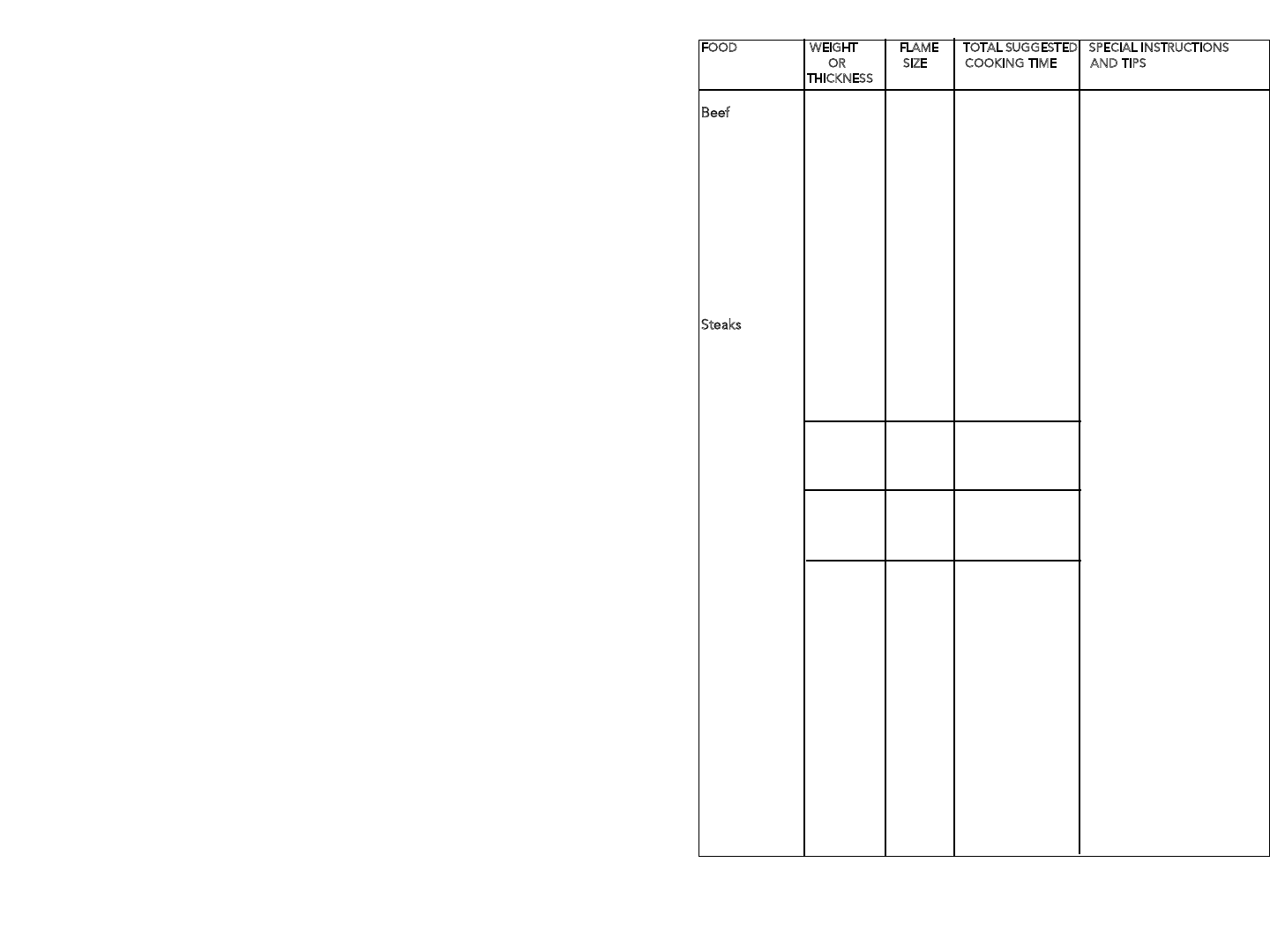
11
Grill Cooking Chart
FOOD WEIGHT FLAME TOTAL SUGGESTED SPECIAL INSTRUCTIONS
OR SIZE COOKING TIME AND TIPS
THICKNESS
Beef
Hamburger 1/2-3/4” Med 8-15 minutes Grill, turning once when
(1.3-1.9cm) juices rise to the surface.
We recommend that ground
chuck be used for
hamburgers, as it will give
you a juicer hamburger than
ground round. Do not leave
hamburgers unattended
since a flare-up could occur
quickly.
S
teaks
Rib, Club,
Porterhouse,
T-Bone
Sirloin
Rare 1”(2.5 cm) High 8-12 minutes Remove excess fat from
(140
0
F/60
0
C) 1 1/2” High 11-16 minutes edge. Slash remaining fat at
(3.8 cm) 2” (5.1 cm) intervals to keep
edges from curling. Grill,
Medium 1”(2.5 cm) Med 12-20 minutes turning once.
(160
0
F/71
0
C) 1 1/2” to High 16-25 minutes
(3.8 cm)
Well-done 1”(2.5 cm) Med 20-30 minutes
(170
0
F/77
0
C) 1 1/2” to High 25-35 minutes
(3.8 cm)
Tenderloin 5 pounds High 30-40 minutes Remove surface fat and
(2.3 kg) connective tissue. Fold over
thin end to form uniformly
thick piece. Bind with string.
Grill turning to brown evenly.
Brush often with melted
butter, margarine or oil.
Cook until rare.
10
Grill Operation
•Turn on kitchen ventilation product.
•Turn grill control knob to HI.
•Preheat on HI for 5 to 10 minutes.
•Place food on grill, cook as desired.
Grill Cooking Tips
•When grilling chicken, roasts, well done steaks or chops and thick
pieces of meat, sear on HI. Then, reduce the heat setting to prevent
excessive flare-up. This will allow the food to cook through without
burning the outside.
•After steaks, chops, or hamburgers have been allowed to sear for
approximately 1 minute, you may slide a spatula under the meat and
turn it approximately 90
0
so that a waffle pattern will be seared onto
the food.
•Use a metal spatula instead of tongs or a fork to turn the meat. A
spatula will not puncture the meat allowing juices to escape.
•Turn the meat over only once. Juices are lost when steaks, chops or
hamburgers are turned several times. The best time to turn the meat
is after the juices have begun to bubble to the surface.
•To test for doneness, make a small slash in the center of the meat, not
the edge. This will prevent loss of juices.
•Occasionally there may be flare-ups or flames above the grill due to
drops of fat falling onto the flame spreader. It is normal to have some
flare-up during grilling. Use a long handled spatula to move food to
another area until the flames subside.



